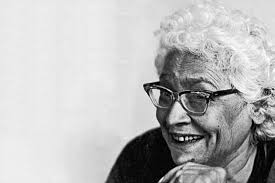Book of a lifetime: The Quilt and Other Stories by Ismat Chughtai
From The Independent archive: Kishwar Desai finds a new level of iconoclastic author who shows that writing can have unexpected consequences – while exploding the subjects women are ‘allowed’ to write about

Why is it that, most of the time, life-changing events appear to come out of nowhere? Or are we always unconsciously preparing for that moment, and the destiny-diverting collision (even with a book) is never as coincidental as it seems?
There are few books that I have read which have not shaped my mind and fate in some way, especially when I was growing up. Whether it was the PG Wodehouse Jeeves series, or the collection of Oscar Wilde stories I constantly enjoyed... or Jane Austen, Charles Dickens, Daphne du Maurier. I was a greedy monster, devouring them all. But it was only in my thirties that I stumbled upon two Urdu authors, Ismat Chughtai (1915-1991) and Saadat Hasan Manto (1912-1955), whose work had a seminal impact on me – and whose rebellious lives I carry about with me like a talisman.
Since I was drawn to the unconventional, was I searching for iconoclastic writers who challenged social and moral attitudes, but who had roots in the East? Their image of the “outsider” was something I could identify with, and they wrote in a very accessible style.
It was a collection of short stories by the perceptive and outspoken Muslim woman author Ismat Chughtai, which contained an astonishingly provocative story called Lihaaf or The Quilt (originally published in 1941), that finally deflected my staid career as a TV professional in the 1990s.
The other stories could be considered equally inflammatory, but Lihaaf was an unusual narrative for a woman writer in India. It was about a rather thinly disguised lesbian relationship. Indeed, it was so bold at the time that the magazine editor who first published it assumed it was written by a man.
As the truth emerged, the story generated further outrage. Chughtai was newly married and around 30 at the time. She was dragged to court for obscenity. Though Chughtai said she tried to tone down the tenor of her subsequent writing, her autobiographical novel Crooked Line made it clear that she had no intention of ignoring difficult subjects. Like Manto, she faced ignominy and insult, but acknowledged it was part of her chosen territory.
When she suffered opprobrium over a story about her older brother, she said she felt she was “gutted by fire, reduced to ashes” – but equally, felt compelled to write it. Her early experience that writing can have unexpected consequences, and be a lonely profession, has stayed with me.
When anyone looks askance at my dark subjects, I simply re-read Chughtai’s ironical and often hilarious encounters with those who felt that women from good families only write about certain kinds of things.
Join our commenting forum
Join thought-provoking conversations, follow other Independent readers and see their replies
Comments
Bookmark popover
Removed from bookmarks